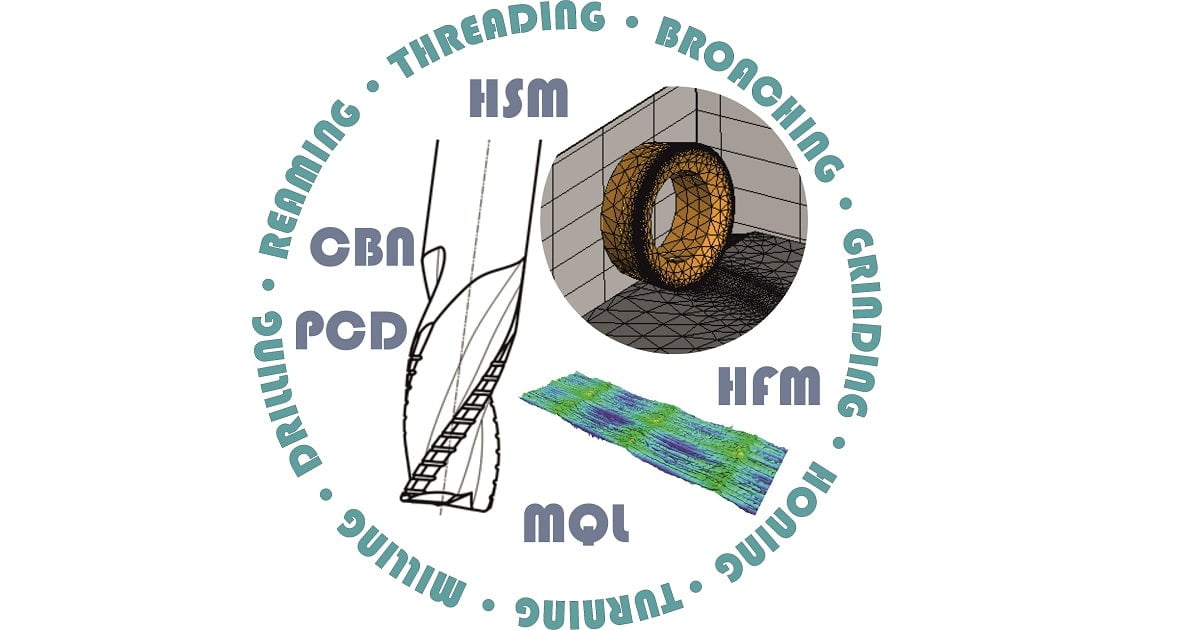- 3.2Impact Factor
- 6.4CiteScore
- 16 daysTime to First Decision
Advanced Materials Machining: Theory and Experiment
This special issue belongs to the section “Manufacturing Processes and Systems“.
Special Issue Information
Dear Colleagues,
The machining of modern materials, such as titanium and nickel alloys, composites, and advanced ceramics, presents numerous challenges due to their high hardness, wear resistance, and low thermal conductivity. Consequently, machining these materials is associated with rapid tool wear, the necessity for precise cooling systems, and the selection of machining parameters and strategies to ensure the required workpiece quality. Furthermore, the demands for process efficiency and sustainability drive the need to optimize machining technologies, including the use of advanced tools with coatings, as well as technologies such as High-Speed Machining (HSM), High-Feed Milling (HFM), and Minimum Quantity Lubrication (MQL) cooling.
This Special Issue is dedicated to research on modern material machining technologies, aiming to deepen understanding of processes and phenomena and improve the efficiency and reliability of existing machining methods. The scope of this Special Issue includes studies on cutting tools, particularly their geometry and wear; the modeling and simulation of machining processes with an emphasis on numerical methods and artificial intelligence; and investigations into cutting parameters and strategies, cooling methods, quality parameters after machining (such as surface roughness, waviness, dimensional and shape accuracy), and the condition of the surface layer.
This Special Issue is related to "Constellation of Scientific Schools in Mechanical Engineering 2025", which takes place virtually on 24–26 September 2025 (https://www.mdpi.com/journal/materials/events/18451).
Dr. Łukasz Żyłka
Prof. Krzysztof Żak
Prof. Dr. Sergej Hloch
Guest Editors
Manuscript Submission Information
Manuscripts should be submitted online at www.mdpi.com by registering and logging in to this website. Once you are registered, click here to go to the submission form. Manuscripts can be submitted until the deadline. All submissions that pass pre-check are peer-reviewed. Accepted papers will be published continuously in the journal (as soon as accepted) and will be listed together on the special issue website. Research articles, review articles as well as short communications are invited. For planned papers, a title and short abstract (about 250 words) can be sent to the Editorial Office for assessment.
Submitted manuscripts should not have been published previously, nor be under consideration for publication elsewhere (except conference proceedings papers). All manuscripts are thoroughly refereed through a single-blind peer-review process. A guide for authors and other relevant information for submission of manuscripts is available on the Instructions for Authors page. Materials is an international peer-reviewed open access semimonthly journal published by MDPI.
Please visit the Instructions for Authors page before submitting a manuscript. The Article Processing Charge (APC) for publication in this open access journal is 2600 CHF (Swiss Francs). Submitted papers should be well formatted and use good English. Authors may use MDPI's English editing service prior to publication or during author revisions.
Keywords
- precision machining
- machining and machinability
- difficult-to-cut materials
- metals and alloys
- cutting process modelling and optimization
- machining simulation
- tool wear and durability
- surface topography
- diagnostics and process monitoring
- cooling conditions

Benefits of Publishing in a Special Issue
- Ease of navigation: Grouping papers by topic helps scholars navigate broad scope journals more efficiently.
- Greater discoverability: Special Issues support the reach and impact of scientific research. Articles in Special Issues are more discoverable and cited more frequently.
- Expansion of research network: Special Issues facilitate connections among authors, fostering scientific collaborations.
- External promotion: Articles in Special Issues are often promoted through the journal's social media, increasing their visibility.
- e-Book format: Special Issues with more than 10 articles can be published as dedicated e-books, ensuring wide and rapid dissemination.


